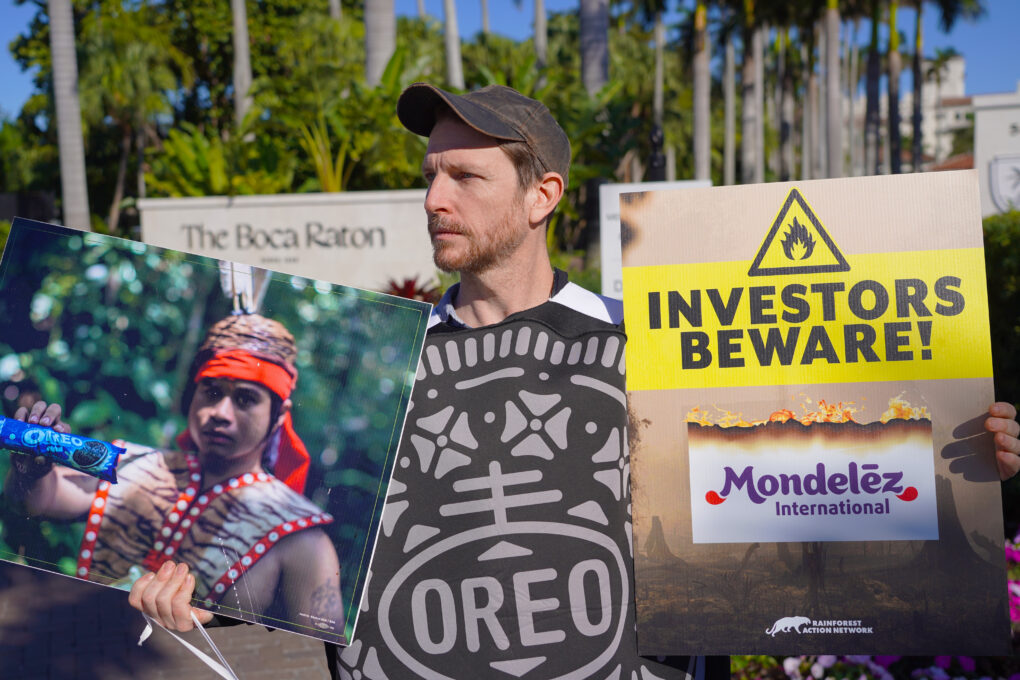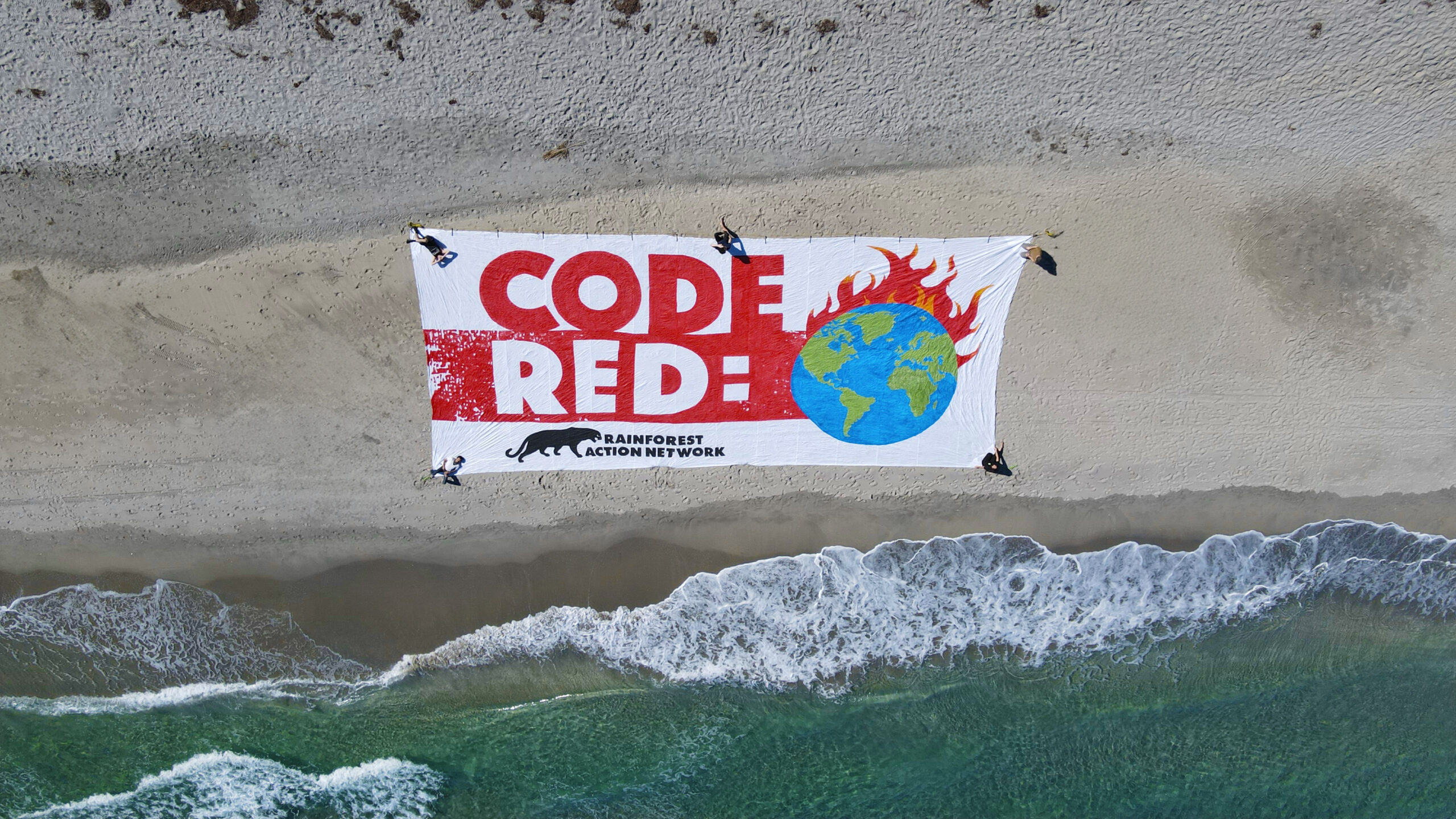Last week, we dipped our toes in the warm waters of South Florida at a gathering of elite investment firms and consumer goods companies known as the Consumer Analyst Group of New York (CAGNY) conference.
But it wasn’t all fun in the sun: Conference headliners at this year’s event included Mondelēz International and Procter & Gamble — two of the world’s worst drivers of tropical deforestation, which is responsible for up to 20% of global greenhouse gas emissions.
The irony that CAGNY took place in Boca Raton, located in a region facing catastrophic sea-level rise due to climate change, was not lost on the human rights and environmental activists in attendance. Their message to event organizers was clear: Clean up your supply chains or face the consequences.
Most major brands have made public policy promises to stop sourcing “forest-risk commodities” such as palm oil, soy and beef from bad actors. Alarmingly, many of them, including Mondelēz International and Procter & Gamble, are still receiving failing grades on RAN’s annual Keep Forests Standing Scorecard.

This inaction poses extreme risks to forests, frontline communities, and our climate, but one lesser-known risk is to investors and consumer goods companies themselves. New requirements for deforestation-free supply chains under the precedent-setting European Union Deforestation Regulation (EUDR) create a major financial risk for non-compliant companies — and most are nowhere near compliance.
To underscore these points, we disseminated informational postcards during a presentation by one of the conference’s worst offenders, Mondelēz International, the maker of ubiquitous brands like Oreo and Ritz. Security escorted us out while we politely but loudly explained the risks to tropical forests associated with Mondelēz’ commodity sourcing to investors.
Before leaving the resort, we slipped some copies of our KFS Scorecard under conference attendees’ doors — ideal beach reading for a winter retreat along Florida’s vanishing coastline.

